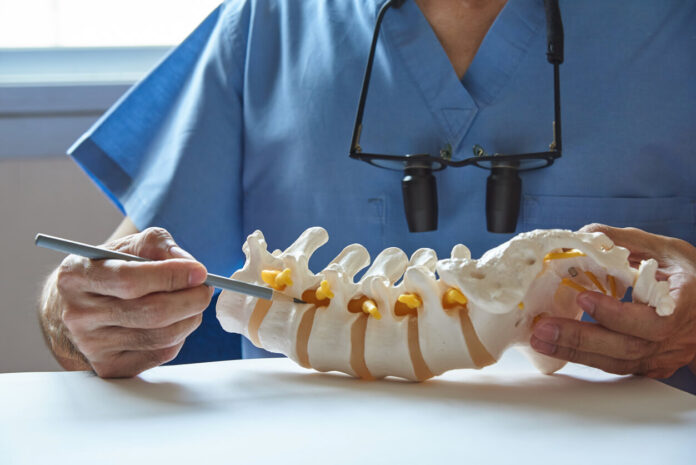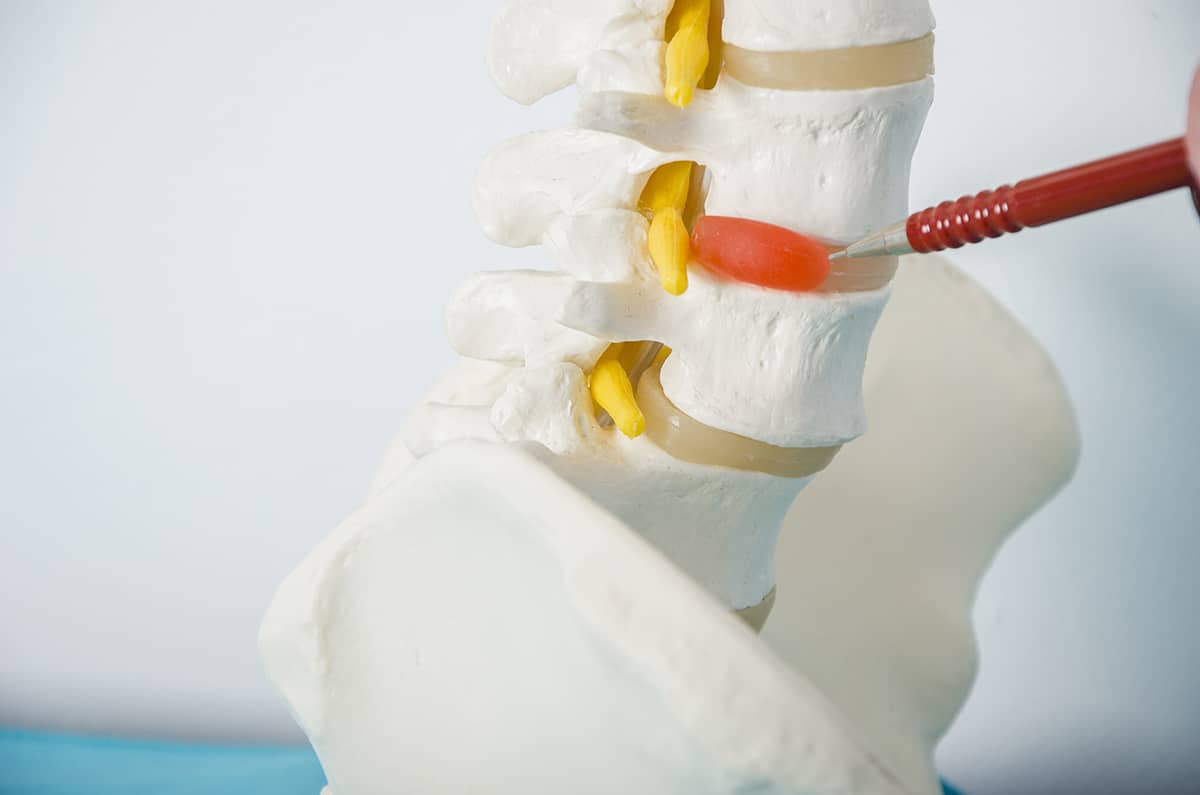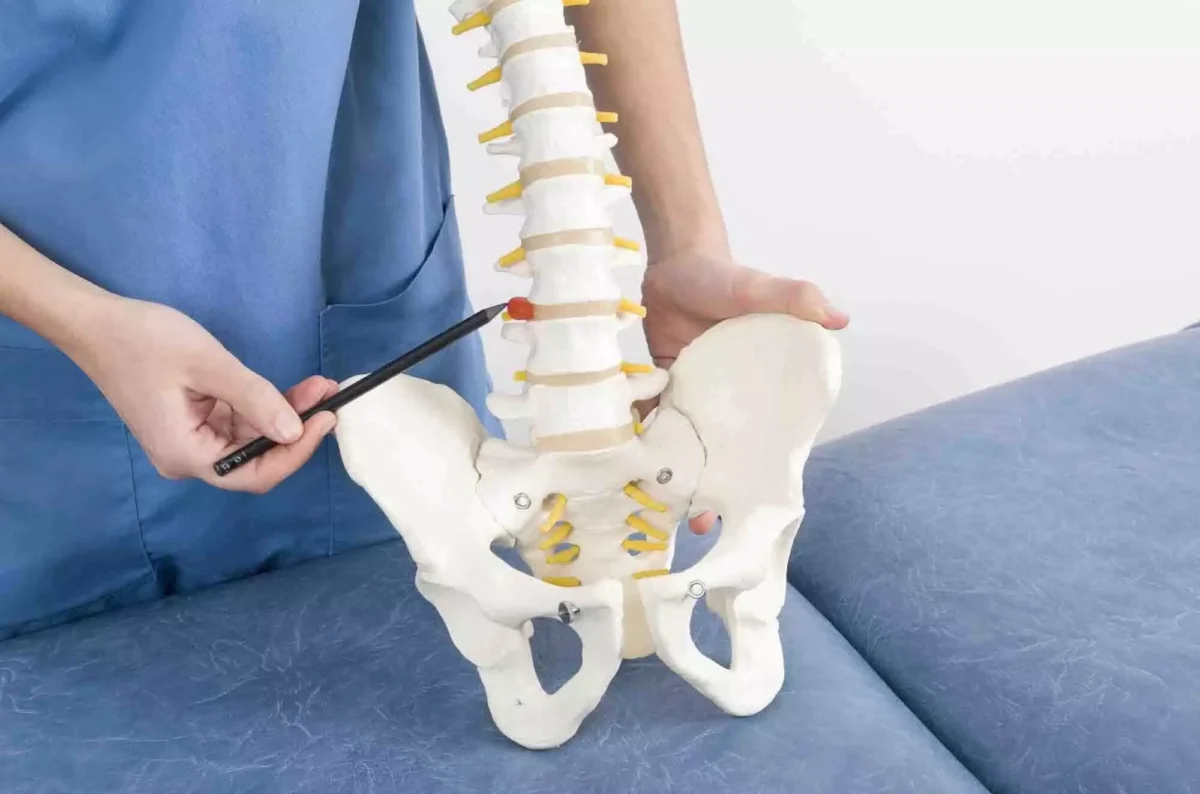
Back pain and spinal injuries can be debilitating for many people, and disc replacement surgery could be a viable option for those suffering from these conditions. However, as with any surgery, it’s important to weigh the potential benefits against the potential risks. In this blog post, we’ll explore the advantages and disadvantages of artificial disc replacement surgery and provide an overview of what to expect if you opt for this type of treatment.
Overview of the Spine and Its Role in Overall Health
The spine is a complex structure that plays a crucial role in our overall health and well-being. Located between the skull and the pelvic bones, it consists of 33 individual vertebrae that are separated by intervertebral discs. The spine not only provides support to our body but also enables us to move and provides protection to the spinal cord.
A healthy spine also improves the coordination and overall function of the nervous system, which is responsible for the communication between our brain and the rest of the body. Therefore, it is essential to maintain the health of our spine to avoid developing any conditions related to its structure, as it can have an adverse impact on our overall health.
Benefits of Disc Replacement Surgery

Disc replacement surgery is a procedure in which the damaged disc is removed and replaced with an artificial implant. It can treat conditions such as degenerative disc disease, spondylolisthesis, herniated discs, and facet joint pain. It offers several advantages compared to other types of spinal surgeries:
- Improved Mobility and Pain Relief: The artificial implant is designed to mimic the natural motion of the spine, thus providing an improved range of motion and decreased pain.
- Reduced Risk of Complications Compared to Other Surgeries: Disc replacement surgery tends to cause fewer complications than spinal fusion and other types of surgeries due to the lack of hardware involved in the procedure.
- Long-Term Benefits: The artificial disc can last up to ten years, meaning it offers durable relief and potentially fewer future surgeries compared to other options.
Risks of Disc Replacement Surgery
Disc replacement surgery is a procedure designed to alleviate pain caused by a damaged or herniated spinal disc. While the surgery can have many benefits, it is important to be aware of the potential risks involved. Here are some of the most common risks associated with disc replacement surgery:
- Implant Rejection or Failure: The artificial implant may not be accepted by the body, which can lead to further complications. Additionally, the implant may fail due to wear and tear over time.
- Infection: Infection is a risk that comes with any surgery.
- Nerve or Muscle Damage: Incorrect positioning of the artificial disc can cause damage to nerves and muscles, resulting in long-term complications. This is why selecting a surgeon with experience performing this type of procedure is important.
Common Reason for Disc Replacement Surgery

Disc replacement surgery is a procedure that involves removing a damaged spinal disc and replacing it with an artificial one. This type of surgery is recommended in cases where conservative treatments have failed to reduce pain and restore mobility. There are several common reasons for disc replacement surgery, including the following:1. Degenerative Disc Disease
This is a condition where the natural discs within the spine begin to degenerate due to age or injury. The artificial disc can offer relief from pain and improved mobility. This can be a good option for those who do not want to undergo spinal fusion. The implant can also potentially last longer than spinal fusion.
2. Herniated Disc
A herniated disc is when a tear occurs in the outer layer of the natural spinal discs, causing them to bulge outward and press against nearby nerves. Disc replacement surgery can provide relief from the associated pain and improve the functioning of the spine. Moreover, it prevents the need for spinal fusion.
3. Spondylolisthesis
This is a condition where one vertebra slips out of place due to degeneration or injury, causing instability in the spine and associated pain. Disc replacement surgery can help reduce this pain and improve spine stability. The risk of further vertebra slippage is reduced, as well.
Preparation for Disc Replacement Surgery
Preparation for Disc Replacement Surgery is a critical component of ensuring a successful outcome. Prior to surgery, your healthcare provider will carefully review your medical history and perform a physical examination to determine if you are a suitable candidate for the procedure. The evaluation may include imaging tests such as an MRI or CT scan to identify the location and extent of disc degeneration. Your surgeon may also perform blood tests and other diagnostic tests to identify any underlying medical conditions that could impact the success of the surgery.
You will be advised to stop smoking and lose weight if necessary, as these factors can also affect the procedure’s success. In addition, you will be given detailed preoperative instructions on medications, diet, and activities to avoid before the surgery. Proper preparation is essential in ensuring a smooth surgical process and a quick recovery.

In Conclusion
Disc replacement surgery has its benefits and risks that must be weighed carefully by both doctors and patients. While the procedure can provide significant pain relief and improve spinal function, it can also come with possible complications and long recovery times. Patients need to consider all of their treatment options carefully and have informed discussions with their healthcare providers to help determine if disc replacement surgery is the best choice for their spinal health.
The risks associated with disc replacement surgery should be considered before undergoing the procedure. You should always consult a reputable specialist to evaluate your condition and discuss the potential benefits and risks of the treatment. A professional healthcare provider can provide you with a personalized evaluation based on your needs and guidance throughout the process. With proper preparation, disc replacement surgery can be a successful treatment option for many patients with severe spinal pain or instability.








